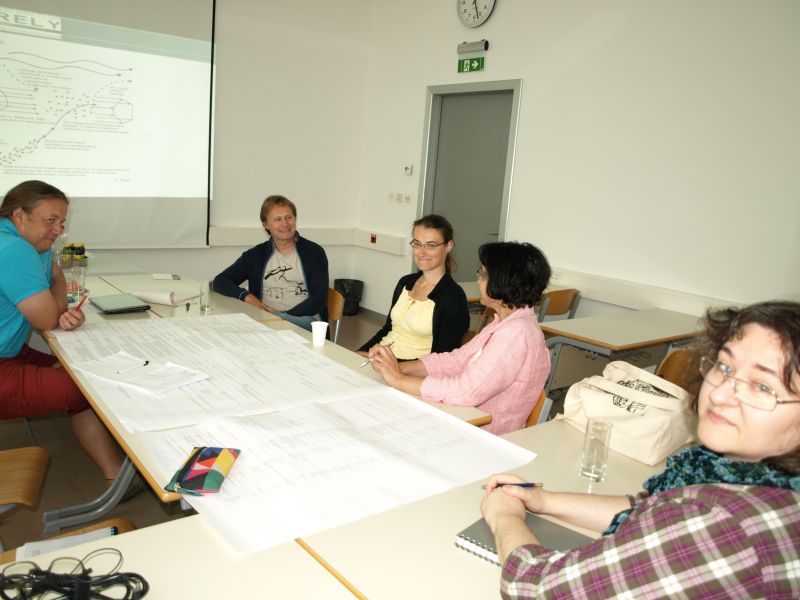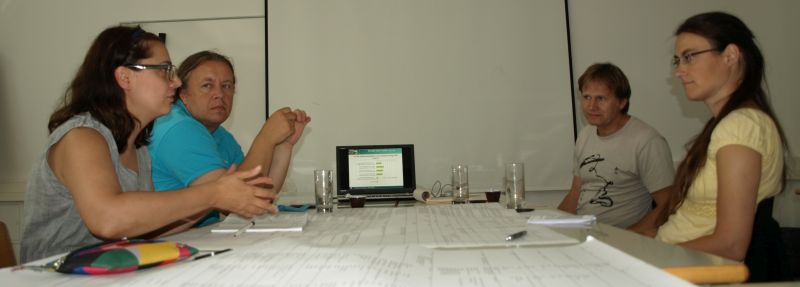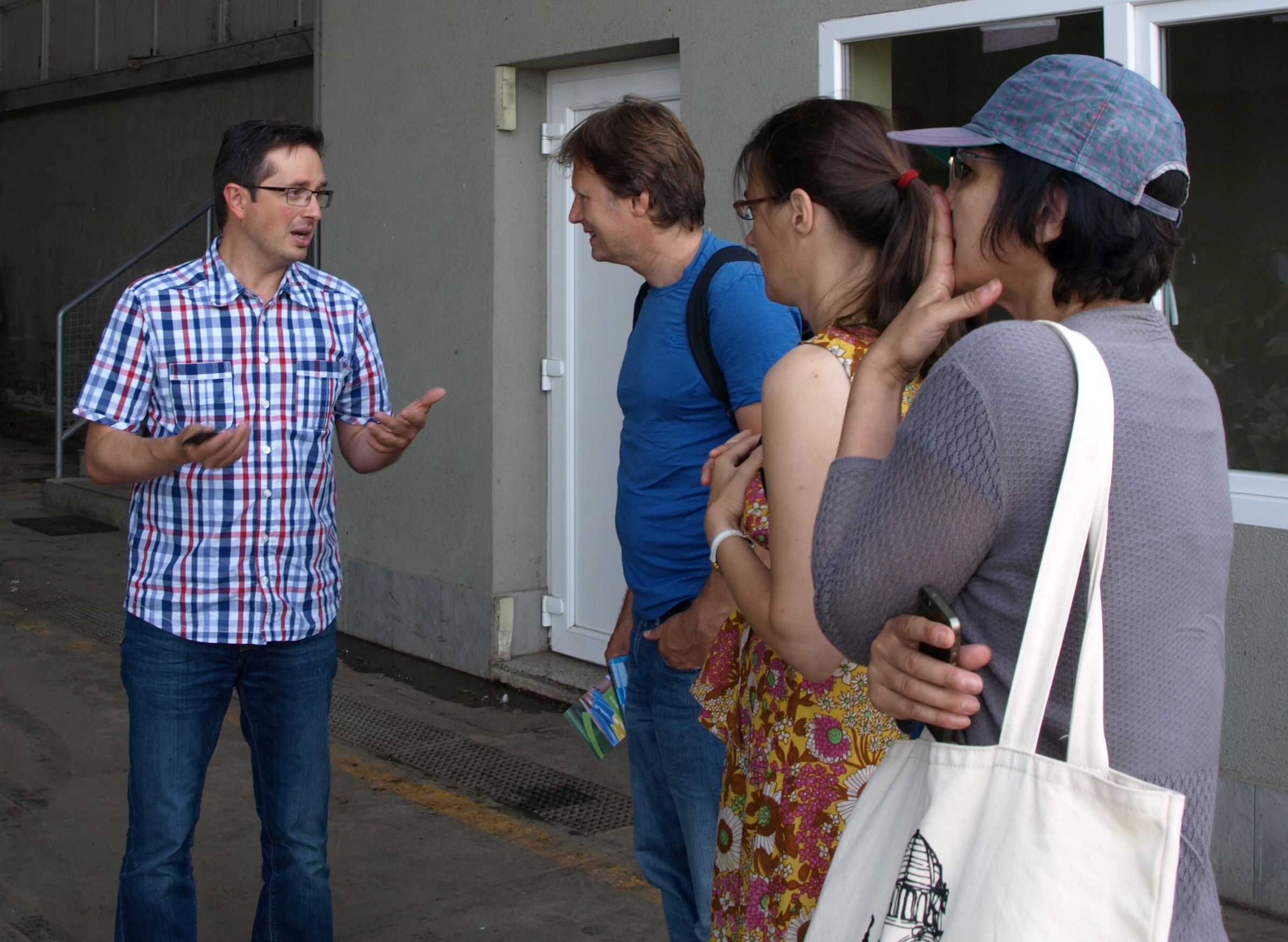WG3 Meeting of the COST Action TU1401
Internal reference MINUTES
Venue: Faculty of Civil Engineering Rijeka, Radmile Matejčić 3, 51000 Rijeka/Croatia
Date: 07/07/2016 and 08/07/2016
There was a small group of participants in WG3 that gathered in Rijeka on 7th and 8th of July this year. Co-chair Dina Stober was the local organiser of the meeting and the host institution was t he Faculty of Civil Engineering in Rijeka/Croatia.
he Faculty of Civil Engineering in Rijeka/Croatia.
On the first day class work was planned. Dina Stober presented the results of the case study (30) analysis, and afterwards a discussion on theory background and planned achievements took place. A bottom up analysis approach and a descriptive form of presentation of the cases were agreed as well as the use of an established participation classification (normative, instrumental and substantial (Fiorentino, 2014).
Further steps on synthesis of results were discussed and tasks were distributed. It was agreed to put an emphasis on participation level (normative, instrumental, substantive), intensity and way of communication (one way, two ways). Matthias Buchecker presented the results from an on-line survey on participatory planning of RE-projects in EU. The response from the members of the Action was very good, all the countries participated. The results showed rather high level of participation within EIA procedure in EU countries. The discussion included possible clustering of the responses that could contribute to the development of the foreseen tool box.
It was proposed to investigate if regional differences can be confirmed (southern, western, central, eastern Europe) and to conduct further research on a broader perspective of level of democracy among EU countries. Di na presented a research that was conducted in Croatia on biomass facilities in different landscapes (scenarios on 4 landscapes and small and large facilities).
na presented a research that was conducted in Croatia on biomass facilities in different landscapes (scenarios on 4 landscapes and small and large facilities).
Stanislav suggested that he can try to carry out the same survey in Czechoslovakia according to similar landscapes (agricultural, village edge, industrial, natural) to provide comparison of results on biomass acceptability. Matthias Buchecker reminded the participants of a previous scheme of the tool box, it was discussed on data that were already gathered and that were lacking for producing the tool box. In a next step, Matthias will try to develop a decision tree for the tool box based on the existing data.
The second day was planned for a h alf day field visit to a Croatian case study of innovative participation in RE. The story of Krk – null energy island was presented by the project managers of a local utility company and we visited a waste sorting facility with installed PV at Treskavac on Krk. During the visit, data on the participation process were collected. After return trip to Rijeka, a group discussed final remarks at the faculty venue and the tasks for next steps were distributed.
alf day field visit to a Croatian case study of innovative participation in RE. The story of Krk – null energy island was presented by the project managers of a local utility company and we visited a waste sorting facility with installed PV at Treskavac on Krk. During the visit, data on the participation process were collected. After return trip to Rijeka, a group discussed final remarks at the faculty venue and the tasks for next steps were distributed.
It was an experience of a great city, nice landscapes and good jobs done.
See you in Innsbruck!
